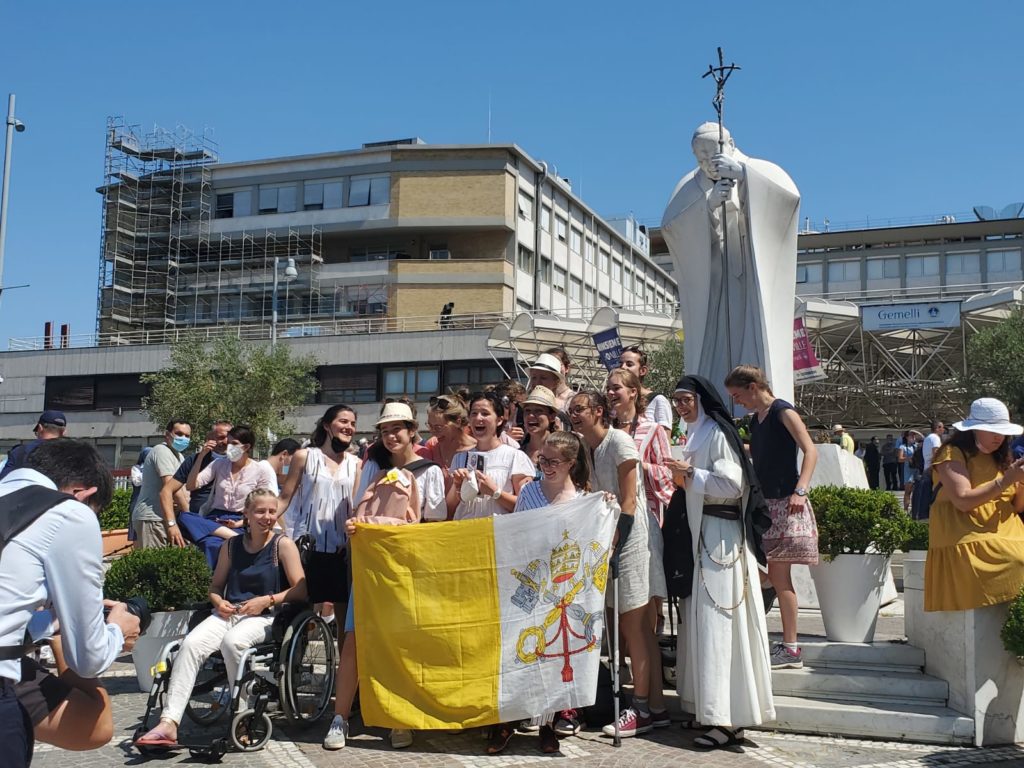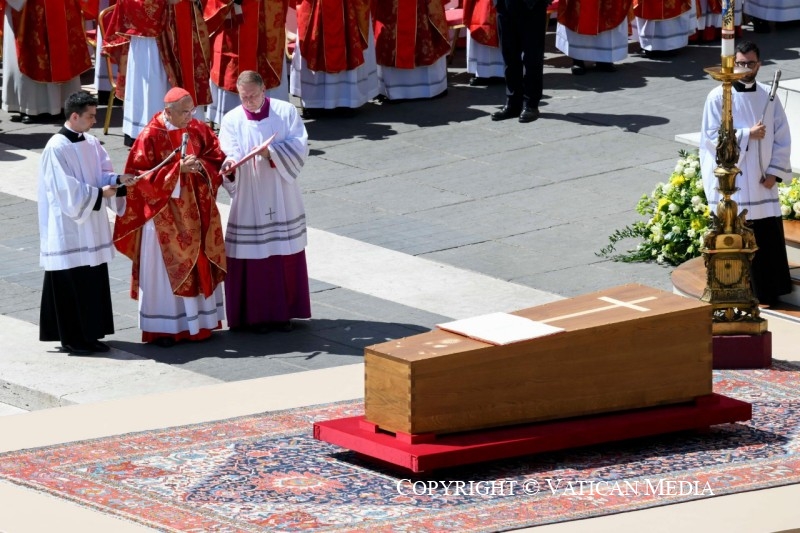Pope Prays for Seafarers on ‘Sea Sunday’
'Take Care of the Health of the Seas: no Plastic in the Sea!'

Pope Francis offered prayers for seafarers on July 11, 2021, a day celebrated around the world as “Sea Sunday.”
The Holy Father noted the special day after praying the noonday Angelus from the 10th-floor balcony of Gemelli Hospital, where he is recovering from surgery performed a week ago. The Holy Father is expected to remain in the hospital for a few more days. The crowd of faithful gathered outside the hospital rather than the usual site in St. Peter’s Square.
“Today is “Sea Sunday”, dedicated in a particular way to seafarers and to those whose source of work and sustenance is the sea,” the Pope Said. “I pray for them and exhort everyone to take care of the oceans and seas. Take care of the health of the seas: no plastic in the sea!”
UN figures show 8 million tons of plastic enter the ocean annually, killing marine life and feeding into the human food chain.
In the Catholic Church, Sea Sunday is supported by the Apostleship of the Sea. A second collection is held during Catholic Sea Sunday Mass, with all funds raised going to the Apostleship of the Sea to support its work. It is a day of remembrance, prayer, and celebration, and an opportunity to think about and thank those seafarers who work tirelessly throughout the year bringing us goods we often take for granted.
The Apostleship of the Sea was founded in Glasgow in 1920. At this time Britain had one of the largest merchant fleets in the world, employing many thousands of British seafarers. The Apostleship of the Sea ran large seafarers’ hostels in all the major port towns where seafarers could stay while their ships were in port, often for weeks at a time. Hundreds of volunteers from the local parishes were involved in providing hospitality and entertainment for seafarers in these hostels, which were always full.
Over time the Apostleship of the Sea grew into a worldwide pastoral and welfare organization with 80 functioning centers by the end of World War II.
Then globalization and the drive for greater profit margins, combined with technological advances, changed the face of international shipping forever. Ships became larger, ports moved downriver, and turnaround times for ships in port were reduced dramatically. Crews also became smaller and were increasingly recruited from developing world countries where wages were lower. Owners registered their ships under so-called flags of convenience to avoid stringent regulatory controls.
Today’s seafarer is no longer in port for a few nights, but often only for a few hours. In these changed circumstances Apostleship of the Sea adapted to provide pro-active outreach by way of ship visiting to assess practical needs, backed up by a modern drop-in center inside the docks, equipped with email terminals and telephones to facilitate contact with loved ones back home whom they may not have seen for nine or even twelve months.
While the nature of our work has evolved, our founding belief that every seafarer deserves fair working conditions, respect for their human rights, and the very best we can offer remains at the heart of what we do, and to date there are 230 chaplains in over 300 ports across 41 countries from Australia to the USA.
Related

Cardinal Parolin at the Novendalia Mass: “Mercy leads us to the heart of faith”
Exaudi Staff
27 April, 2025
8 min

Pope Francis’ Tomb in Santa Maria Maggiore
Exaudi Staff
27 April, 2025
1 min

Mercy and the joy of the Gospel are two key concepts of Pope Francis
Exaudi Staff
26 April, 2025
9 min

Thousands of faithful bid farewell to Pope Francis in St. Peter’s Square
Exaudi Staff
26 April, 2025
2 min
 (EN)
(EN)
 (ES)
(ES)
 (IT)
(IT)

